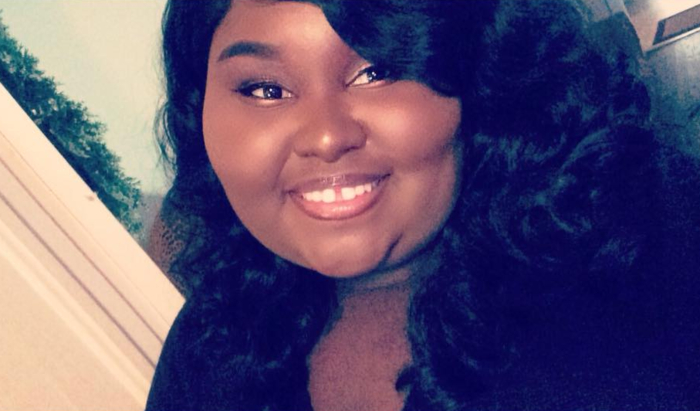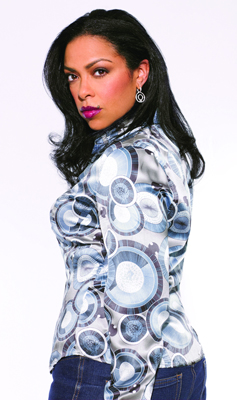As Sister Souljah’s 1999 best-selling novel, The Coldest Winter Ever, was feeding the streets with urban fiction not seen before that time, a legal secretary and a mother from Philadelphia was awaiting her chance to reign with captivating literature. Rejected by at least 20 different publishers over six years, the upcoming author did not become discouraged, but instead self-published. Author Teri Woods reflects and shares with Parlé how she made it from being rejected to becoming a multi-millionaire.
“I knew deep down somebody would get my story.” – Teri Woods
Early on, Woods was grounded with principles and in fact had to perform some dirty and odd jobs in the midst of things. She worked two jobs at one point: an 8am to 4pm shift in a law firm and janitorial services at night. “Your work is your work,” says Woods. “Some people are raised with parents that get up and go to work every day, doing the same thing.” And she is no exception. Woods prides herself on figuring out what she is capable of handling on a daily basis. From selling books out of the trunk of her car to running her own publishing company, she has defined her hustle. “I’m pleased I have the ability to be my own boss.”
Woods didn’t begin to make strides towards success until one of her girlfriends found her first novel, True to the Game, buried in a closet. After reading the book and complimenting the author, Woods took that motivation and pushed forward. With laughter, she reminisces, “I was hustling on the playground and putting in prison orders. I had them like, ‘I be on the toilet readin’ this shit. Yo, I’m feelin’ this.’” She persevered. And with the lack of support groups for independent publishers, a nonexistent market, and no necessary shelf space, she got herself out there regardless.
“You don’t want people to laugh at you; you just want people to feel you… If New York likes it, I’m alright.” – Teri Woods

Moving onto the subject of “crossing over,” Woods assures us that that is not her intention. “It’s not the artist’s responsibility to do anything different to get a mainstream audience.” She compares her writing content to that of hip-hop content. “You write what you know. Hip-hop and rap music weren’t designed for mainstream in the beginning. It transcended itself.” Although that may be true, especially today, Woods reflects on segregation days when it wasn’t that way. “(Segregation) was good in a way and it was bad in a way. Black people only had black people who supported one another. We had no options and had to operate in our own circle. Once we integrated, the problem with that was, it was a decision to boost their (whites) economy because they didn’t integrate back. It was a setup to fail.” She pronounces, “Until hip-hop what did you buy that was black?”
“You have to figure out a way to get that attention, that acceptance from a culture that is not so accepting,” says Woods. However, in a world that tends to be subjective, books should still be categorized by the content rather than the ethnicity of the particular author. “Love is love, men are men, sex is sex, and childbirth is childbirth. I am no different from any other woman. I don’t think you have to be any kind of color to read my book and feel something.” So accept it, accept her.
In a state of an economic crisis, it seems like the beloved author is doing just fine. “There was a time when I was dominating,” says Woods. “I had the market to myself for a minute.” For the years of 2000, 2002, 2004, and 2005, no other urban books were hitting the shelves like that. It was a benefit to Woods’ career and her living. “As long as you had income, people didn’t care if you paid your bills on time.” When the news was first bestowed upon her about a recession, Woods didn’t get what the big deal was. “I still don’t get how bad it is, but I know I can’t afford four cars anymore. It’s different when you’re used to making six figures every month.” Her first deal was a seven figure deal with her publisher. How else would you expect her to act?
Regardless of the fact, the lady knows the meaning of a dollar and is aware that people out there want their money’s worth. “I know Michael Bay isn’t going to let me down with Transformers, explains Woods. “When you say Teri Woods, you’re not going to waste your money.” Although, writing at times may be mind draining for the “black Jackie Collins” and she is still getting her Teri Woods Foundation off the ground, she is here to provide.
“In these economically bad times, people seek a form of entertainment, of escape. They want you to take them away from their problems.” – Teri Woods
Did you know?
Rappers aren’t the only ones that can’t get on The Oprah Winfrey Show. Teri Woods says Oprah won’t have her as a guest because of her use of the ‘N-word’
Readers Might Also Like:
 Here’s A List of Ten Black Urban Authors You Cannot Help But Love
Here’s A List of Ten Black Urban Authors You Cannot Help But Love
 Tips To Help You Monetize Your Site or Blog
Tips To Help You Monetize Your Site or Blog
 [INTERVIEW] Authoress Ashley Te’Arra Talks Making Leap Into Fiction with Debut Novel
[INTERVIEW] Authoress Ashley Te’Arra Talks Making Leap Into Fiction with Debut Novel

